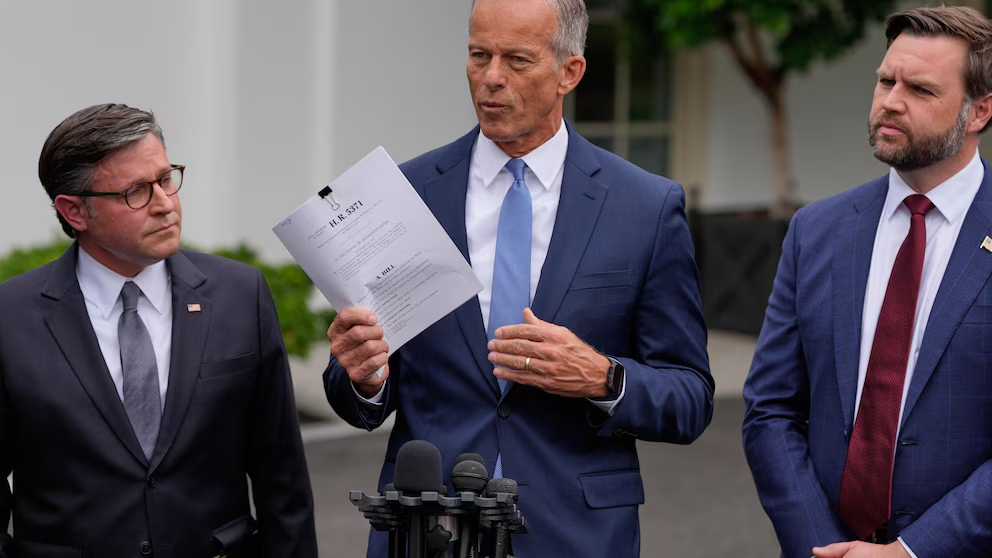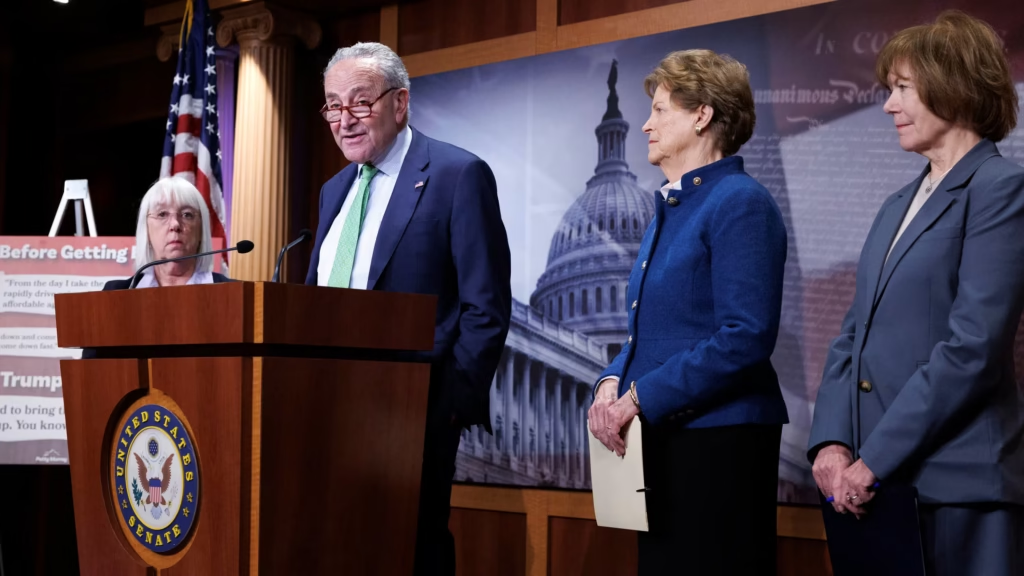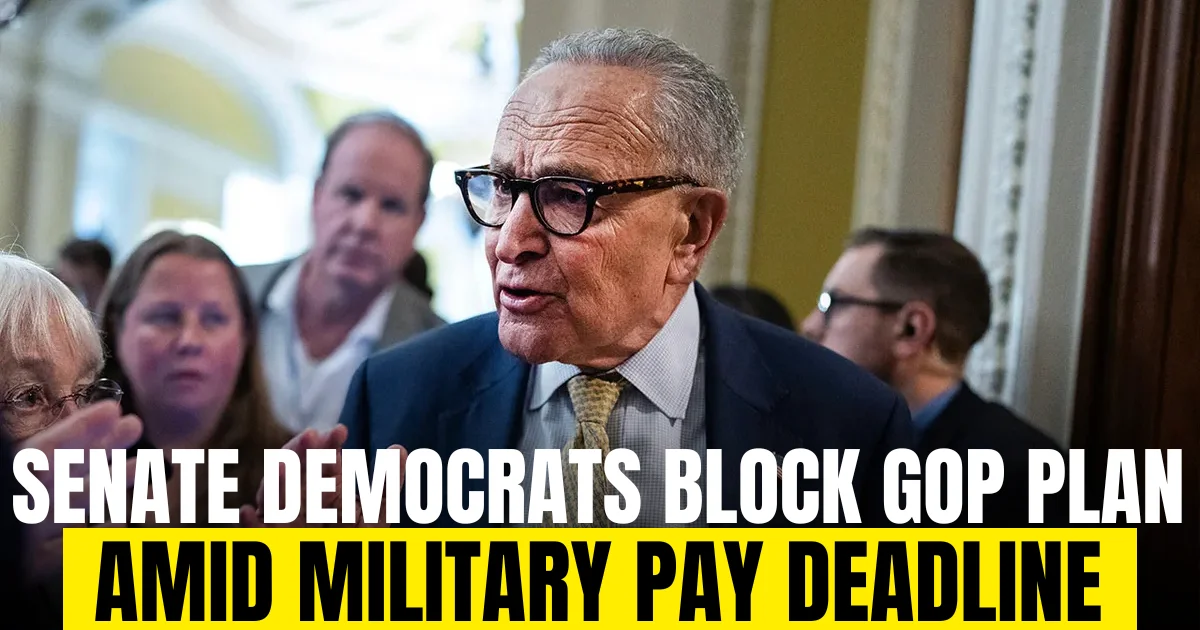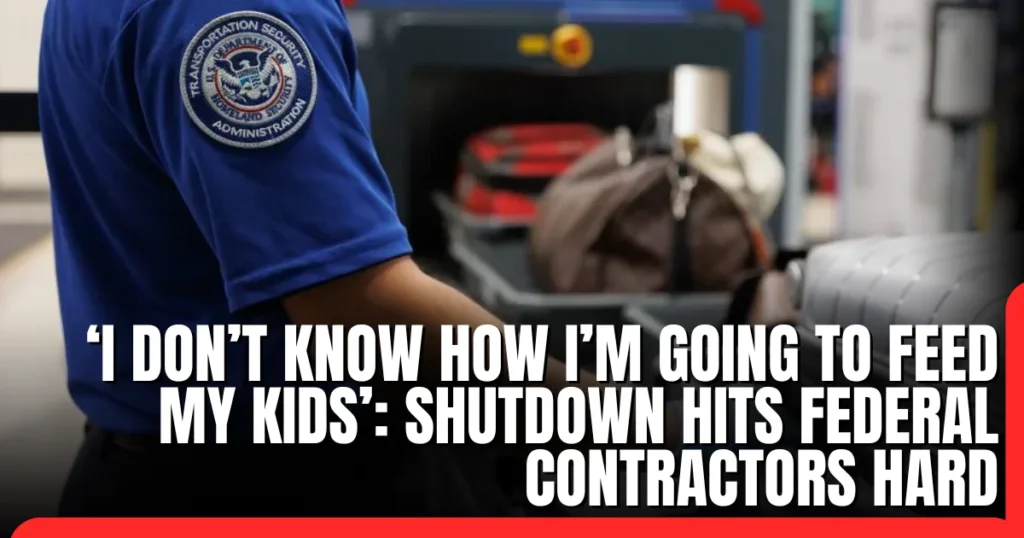Senate Democrats block GOP plan to reopen government as military pay looms. Learn how the shutdown affects Americans and upcoming deadlines.
Table of Contents
Introduction
The U.S. government remains in a tense stalemate as Senate Democrats block GOP plan to reopen federal operations, even as critical military pay deadlines approach. With the shutdown entering its ninth day, lawmakers are at an impasse, leaving service members and federal employees anxiously awaiting their paychecks. This standoff highlights the political tug-of-war on Capitol Hill, with healthcare subsidies, Obamacare tax credits, and budget negotiations at the forefront.

Senate Democrats Block GOP Plan Amid Growing Shutdown Concerns
The ongoing government shutdown has intensified as Senate Democrats continue to block Republican efforts to reopen the federal government. This political deadlock now threatens timely payments for active-duty military personnel and federal staff.
Military Pay Deadline Adds Urgency
Lawmakers face a crucial deadline on October 13, the last date to ensure the military receives their first paycheck during the shutdown. Staff payments follow closely, with the next expected payroll on October 20.
- Failure to act could delay military pay, impacting thousands of service members.
- Senate and House members remain unwilling to compromise, heightening the stakes.
- Bipartisan discussions have yet to progress into formal negotiations.
Senator Jeanne Shaheen emphasized the human cost:
“I’m concerned about everybody going without pay. We need to open the government back up.”
Political Standoff Between Democrats and Republicans

Senate Democrats’ Position:
- Demand an extension of expiring Obamacare tax credits before reopening government.
- Insist on a firm deal addressing healthcare subsidies.
- Refuse to break from their position despite looming deadlines.
Senate Republicans’ Position:
- Argue that negotiations on healthcare premiums can only occur after government operations resume.
- Push for reforms to COVID-era programs, claiming they contributed to inflation.
- Avoid using the “nuclear option” to change filibuster rules for quick passage.
This deadlock has prompted new messaging from both sides, including allegations that Democrats are timing their votes around the Oct. 18 “No Kings” rally in Washington, D.C.
Informal Negotiations Yield Little Progress
Bipartisan talks led by Senators Jeanne Shaheen and Mike Rounds have largely remained informal. Senator Rounds noted:
“Everything’s got to work its way through the process. Until they end the shutdown, there’s not much we can do.”
Despite minor shifts in talking points, neither party has made concessions, leaving the government shutdown to persist.
Impact on the American Public
The federal shutdown has real consequences:
- Military Personnel: Delayed paychecks can disrupt personal finances and morale.
- Federal Employees: Unpaid staff may face economic stress and reduced productivity.
- Healthcare System: Delays in subsidy adjustments may affect premiums for millions.
- General Economy: Prolonged shutdowns can slow economic growth and consumer confidence.
Next Steps for Lawmakers
With Senate recesses approaching, urgency mounts. Key next actions include:
- Scheduling formal negotiations between parties.
- Agreeing on funding extensions for both the government and healthcare subsidies.
- Meeting the October 13 military payroll deadline to avoid delayed paychecks.
FAQs
Q1: How long has the government shutdown lasted?
A1: As of October 9, 2025, the shutdown has entered its ninth day with no resolution in sight.
Q2: What is the deadline for military pay during the shutdown?
A2: Lawmakers must act by October 13 to ensure service members receive their first paycheck.
Q3: Why are Senate Democrats blocking the GOP plan?
A3: Democrats demand an extension of Obamacare tax credits and a guaranteed agreement on healthcare subsidies before reopening the government.
Q4: What are the risks of prolonging the shutdown?
A4: Delays affect military and federal employee pay, healthcare subsidies, and can negatively impact the U.S. economy.
Q5: Can Republicans force the government to reopen without Democratic support?
A5: Currently, Republicans are unwilling to bypass the filibuster or use the “nuclear option,” making bipartisan negotiation essential.
Conclusion
The political deadlock between Senate Democrats and Republicans is leaving the U.S. government in limbo, with critical deadlines looming for military pay and federal operations. Citizens and service members are urged to stay informed about updates on government funding and healthcare subsidies.

